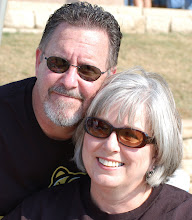Less organization - more chaos.
That's the prescription I found as I was reading an article about the Origins Conference in LA. It was sponsored by Erwin McManus and Mosaic.
The article was constructed by David Trotter from his conference notes and his experience. I was unable to attend, but I find the information he has provided to be essential reading. Thanks David.
Here's the one that hurts...
"If you're trying to be relevant, you are already behind. We are agents of change creating the future that God is imagining."
Dang it!
...Oh yeah
When Jesus says "come follow me" - he is on the move. If you stay where you are, the distance between you and Jesus will grow.. He is moving, moving, moving. A disciple is not seated - a disciple is moving (on the move).
There you go again...
P.S. I should have stopped reading:
Christianity has become adequate rather than an extraordinary experience with God.






